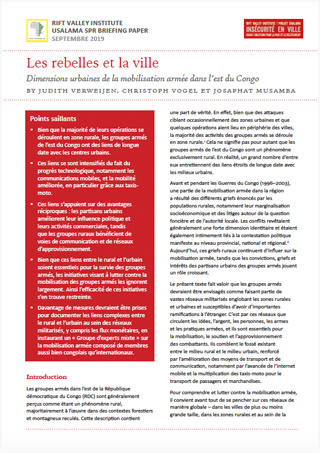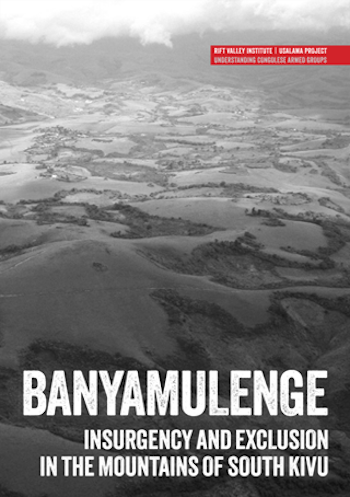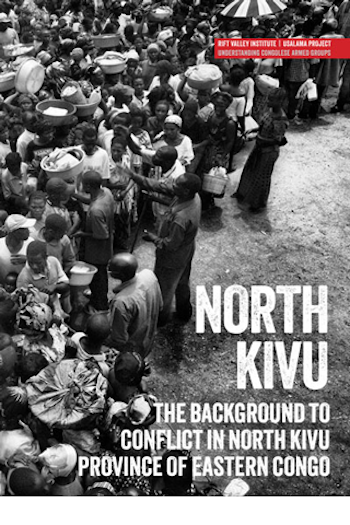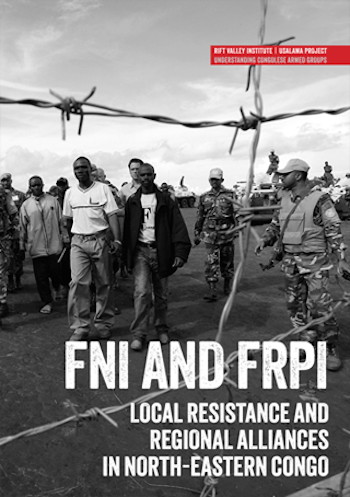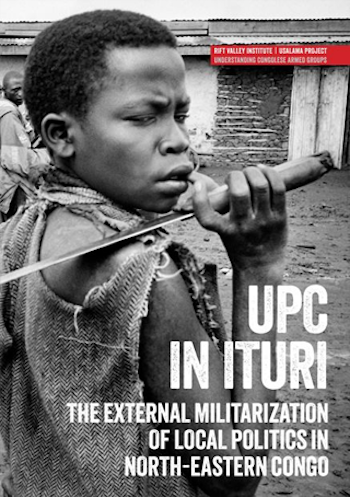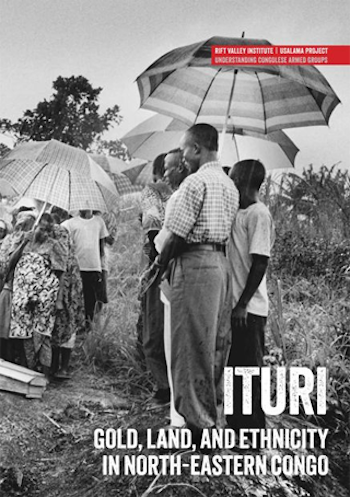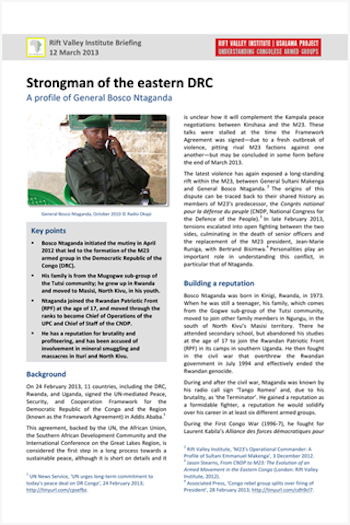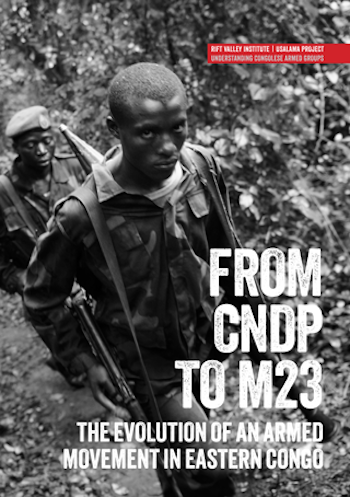Points saillants Bien que la majorité de leurs opérations se déroulent en zone rurale, les groupes armés de l’est du Congo ont des liens de longue date avec les centres urbains. Ces liens se sont intensifiés du fait du…
RVI publishes books, research reports, research papers, briefings and meeting reports in a range of formats. Publications cover policy, research, arts, culture and local knowledge in the countries of eastern and central Africa. Research publications—books, reports and papers—are peer-reviewed. Some RVI publications are also available in French and/or Arabic.
The RVI is a signatory of the Budapest Open Access Initiative (2001); all publications are free for download in PDF format under Creative Commons licences. The views expressed in books and reports published by the RVI are those of the authors, not the Institute.
SEARCH
PUBLICATION TYPE
LANGUAGE
REGION
COUNTRY
This Usalama report by Jason Stearns et al. examines the Banyamulenge, a Tutsi community in the Eastern DRC that has been stuck in a cycle of insurgency and exclusion for over 20 years. While the last major Banyamulenge insurgency…
This Usalama Project report sketches the historical background to the proliferation of armed groups that have emerged in the North Kivu province of the DRC over the past two decades. It serves primarily to demystify the numerous factions and…
This report by Henning Tamm examines the precipitous decline in armed violence in Ituri, a district that manifests all of the Congo’s main challenges to stabilization. The report focuses on the Front des nationalistes intégrationnistes (FNI, Front of Integrationist Nationalists) and the Force…
This Usalama Project report describes the origins, rapid evolution, expansion and activities of this diverse force. The group began as a local response to rampant insecurity but profited from flaws in the various peace deals in the eastern DRC,…
This report by Henning Tamm examines the convergence of factors that helped create and then broke apart the Union des patriotes congolais (UPC, Union of Congolese Patriots), one of Ituri’s most powerful armed groups. Created in the context of Ugandan occupation,…
This Usalama report by Dan Fahey sets out the background to the years of conflict in Ituri district of the north-eastern DRC. The particularly vicious nature of war in Ituri––including large-scale massacres, widespread sexual violence, and the use of…
About this publication This Usalama Project Briefing presents a profile of one of the M23’s most important commanders, General Bosco Ntaganda. Despite his indictment by the International Criminal Court on charges of recruiting child soldiers, murder, rape, and sexual…
This Usalama Project briefing presents a concise biography of the M23’s senior commander, Sultani Makenga, in the eastern Democratic Republic of the Congo (DRC). It describes his rise through the ranks, his earlier membership of the Rassemblement congolais pour la…
This Usalama Project report explores the 2012-2013 M23 rebellion in the eastern DRC. It also discusses the implications of the rebellion for the DRC’s eastern neighbours, Rwanda and Uganda, who have been accused of aiding and abetting the M23. ‘Despite…
Recent Publications

Political Economy of Cash and Markets in Sudan
February 27, 2026
The research provides a snapshot of the war in Sudan in the period from February to April 2025. However, the war is dynamic, with political alliances and territorial control changing. The April 2023 conflict between the Sudan Armed Forces (SAF)

Rethinking Ethiopia II: Youth and politics
February 26, 2026
Seminar report Rethinking Ethiopia, a collaborative essay competition initiative between Addis Ababa University’s Institute for Peace and Security Studies (IPSS) and the Rift Valley Institute’s (RVI) Peace Research Facility (PRF), offers a platform for Ethiopian youth to express their ideas

2025 Year in Review
February 16, 2026
The 2025 Year in Review provides an overview of the Rift Valley Institute’s work over the past year across eastern and central Africa. The report highlights RVI’s research and publication outputs, education and training activities, and public forums and convenings,

